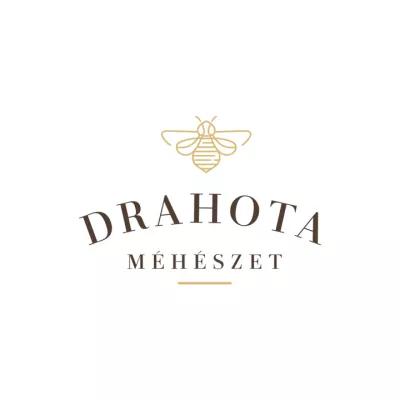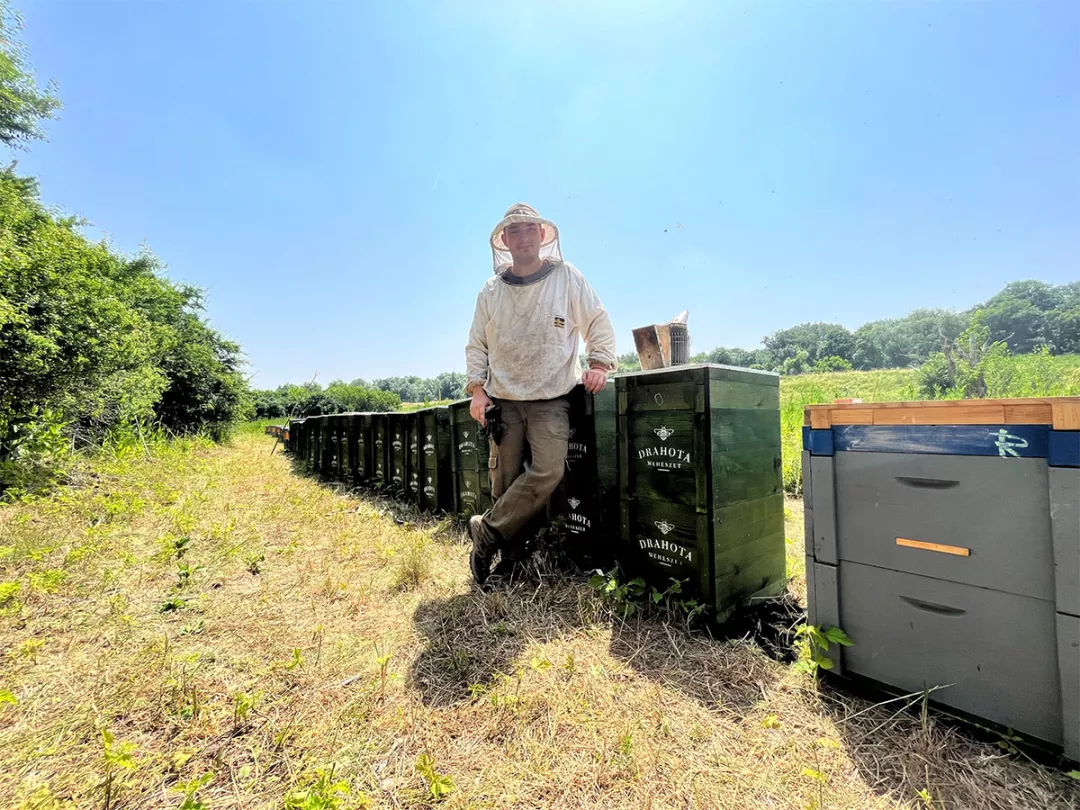General information
RDP Priority
- P2. Competitiveness
RDP Focus Area
- 2B: Entry of skilled/younger farmers
RDP Measure
- M06: Farm & business development
Beneficiary type
- Young farmer
Summary
Róbert Ervin Drahota started developing his own beekeeping business a few years ago. His family has been beekeeping for generations and their knowledge has been passed down from father to son. Róbert wanted to continue the tradition and grow his business activities. With support from the European Agricultural Fund and Rural Development (EAFRD) he was able to buy additional hives, equipment, raw materials (syrups, medicines, etc.) and bees.
Results
- Róbert has doubled the number of his bee colonies, from 36 to 72, and currently produces approximately two tonnes of honey per year.
- Thanks to this increased capacity, his sales channels and customer base are expanding.

Promoter
Róbert Ervin Drahota
Funding
RDP support: ~ 14 000 (EUR)
EAFRD: ~ 11 200 (EUR)
National/Regional: ~ 2 800 (EUR)
Ressourcen
Documents
Links
Context
Young, ambitious professional beekeepers are needed in Hungary because most are over 50 years old. Furthermore, the current market situation is not favourable, and despite ever-increasing costs, there is still an extremely low purchase price for high-quality honey.
The 'science' of beekeeping has been passed down through the Róbert Ervin Drahota’s family over generations. The 26-year-old began working with his bees when he was 21, collaborating closely with his father whenever difficulties or opportunities arise.
In addition to classic honey, Róbert produces a few specialist varieties, beeswax candles, and health products. He mostly sells his products at the city market, but he also sells smaller quantities via craft shops, restaurants, and cafés. Both Róbert and his father regularly enter their products in competitions, and in 2020, Róbert's acacia honey was awarded a bronze medal.
Objectives
The main objectives of this investment were to increase the number of bee colonies and grow Róbert’s income through an increase in yield. Another goal was to set the foundations for further future expansion of the farm.
Activities
The project started in March 2022 and requires a 5-year implementation and maintenance period.
Róbert’s project application was submitted in 2021 with the help of a grant writer. It involved doubling the number of his bee colonies, maintaining them and acquiring the necessary tools to accommodate increased production.
Main results
- Róbert has doubled the number of his bee colonies, from 36 to 72. As a result, he can produce approximately two tonnes of honey per year.
- Currently, Róbert produces seven varieties of honey: linden, acacia, rapeseed, sunflower, mixed flowers, phacelia and silk grass.
- He is constantly seeking to expand his sales channels and is successfully growing his customer base. Since 2023, while continuing to sell his products at the permanent city market in Orosház, and to local cafes and restaurants, Róbert has also run sales points at cultural events, festivals and craft markets.
Key lessons
- If someone is keen to learn beekeeping skills, they should seek an apprenticeship because beekeeping is better learned in practice from someone with experience.
- In cases where CAP support, or investment funding from similar schemes, is awarded based on a beneficiary’s commitment to reach and sustain a certain number of animals or beehives over a number of years, there should always be a contingency plan to cover livestock loss. Sadly, bee colonies do occasionally die out, so sufficient financial resources need to be set aside to enable a quick response.
